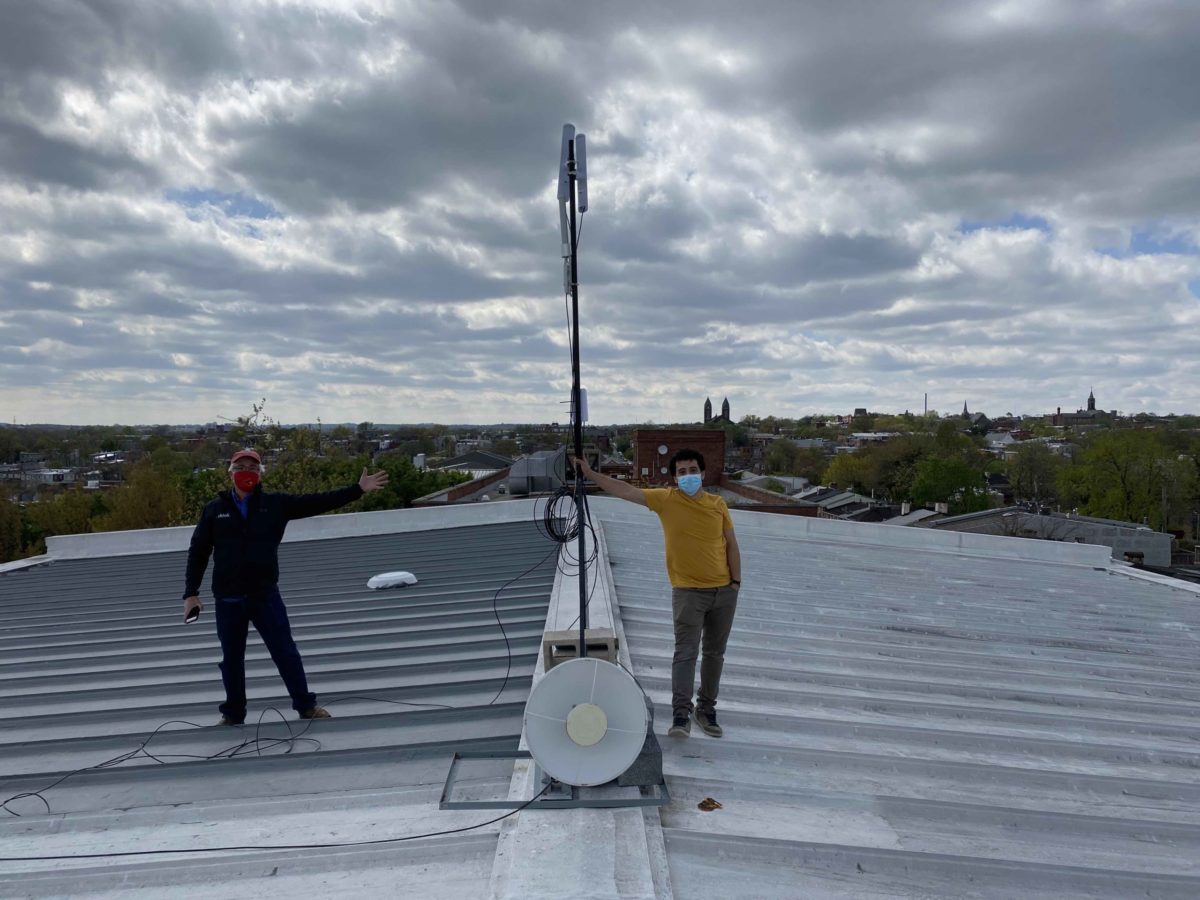Giving Tuesday brought many appeals to bolster nonprofits and organizations that have a positive impact on the community.
For community ISP Project Waves, it was a chance to provide a look at their work during a year when the need to close the digital divide has come into stark relief amid the pandemic. Through Facebook Live on the Digital Harbor Foundation’s page, leaders provided updates on their work to connect households to the internet in a city where 96,000 households lack wireline access in the community, alongside a call to action to donate.
Over the next year, Project Waves is funded to connect 250 households to the Project Waves network in partnership with National Science Foundation, said Project Waves founder and director Adam Bouhmad. The project includes a study that follows what happens when residents gain internet access, and how it changes opportunities.
With the $115,315 RAPID grant, the org is working together with community-based organizations during the pandemic to provide free internet connectivity to previously disconnected households across Baltimore city. Residents who receive connectivity will also receive wraparound digital literacy services. Project Waves is working with UMBC’s Dr. Foad Hamidi and the Digital Harbor Foundation, which is the fiscal sponsor of Project Waves, on this project.
“The way our work, works is by marrying both the human and technical components of a network,” said Bouhmad, a Baltimore native who previously worked at the Digital Harbor Foundation and security engineer. Later in the session, he said that approach extends not just to use of the internet service, but also ownership. Along with the details of how the technology works, he spoke just as passionately about meeting with community associations.
“The whole concept is community ownership from a technical level but also from a human level,” said Bouhmad, who was also recently named one of Technical.ly’s 2020 RealLIST Engineers.
Bouhmad, who founded Project Waves in 2018 in response to the federal government’s repeal of net neutrality, sets up community-based mesh networks. The org puts up sector antennas on tall buildings throughout the city, like the Exelon building and the University of Maryland BioPark, that broadcast internet to surrounding communities.
Since March, Project Waves has connected over 120 households to the internet through pilot programs with the Abell Foundation and Baltimore City Public Schools, which set up saw sector antennas set up on three school buildings to connect 68 households. The Robert W. Deutsch Foundation also provided funding for a van, allowing operations to shift from Bouhmad’s Jeep. Bouhmad described the process behind the scenes as being akin to DirectTV. Households get a receiver in line of sight of the sector antenna to receive internet service. One major difference between Project Waves and companies like Comcast or Spectrum is that community members own the equipment, like the router and receiver provided by Project Waves.
The service is free to the community and the cost to provide the service is why Project Waves works through grants and donations. One sector antenna costs $5,000, while the receiver, modem and labor tally up to something close to $300 per household, according to Samatha Musgrave, head of operations at Project Waves.
Check out the full video:
https://www.facebook.com/DigitalHarbor/videos/789078328335342
Donte Kirby is a 2020-2022 corps member for Report for America, an initiative of The Groundtruth Project that pairs young journalists with local newsrooms. This position is supported by the Robert W. Deutsch Foundation.Join the conversation!
Find news, events, jobs and people who share your interests on Technical.ly's open community Slack

Baltimore daily roundup: Mayoral candidates talk tech and biz; a guide to greentech vocabulary; a Dutch delegation's visit

Baltimore daily roundup: Medtech made in Baltimore; Sen. Sanders visits Morgan State; Humane Ai review debate

Baltimore daily roundup: An HBCU innovation champion's journey; Sen. Sanders visits Morgan State; Humane Ai review debate


